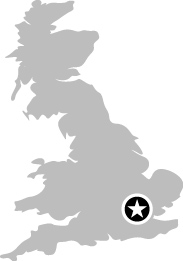079
Westminster Abbey, London, England
![]()
![]()
The Collegiate Church of St Peter at Westminster
Most people think of Westminster Abbey as the church where British monarchs are crowned, married, and buried, and it is one of a few churches and chapels directly controlled by the British Queen. But Westminster Abbey is also a burial place where great Britons are laid to rest with honor, making it the most important scientific burial ground in the world.
Westminster Abbey honors the following great scientists: Charles Darwin (see Chapter 6), Paul Dirac, James Clerk Maxwell (see Chapter 35), William Herschel, Sir Isaac Newton (see Chapter 69), Ernest Rutherford, J .J. Thomson (who discovered the electron), and Lord Kelvin (see Chapter 73) in the Nave. Newton’s grave is ornately decorated (Figure 79-1); Darwin’s is marked simply with the words “Charles Robert Darwin, Born 12 February 1809, Died 19 April 1882”. One notable British scientist who is honored by Westminster Abbey but not actually buried there is Michael Faraday. His grave can be found in London’s Highgate Cemetery.
Two names that may be unfamiliar are Thomas Tompion and George Graham. Tompion and Graham were ...


